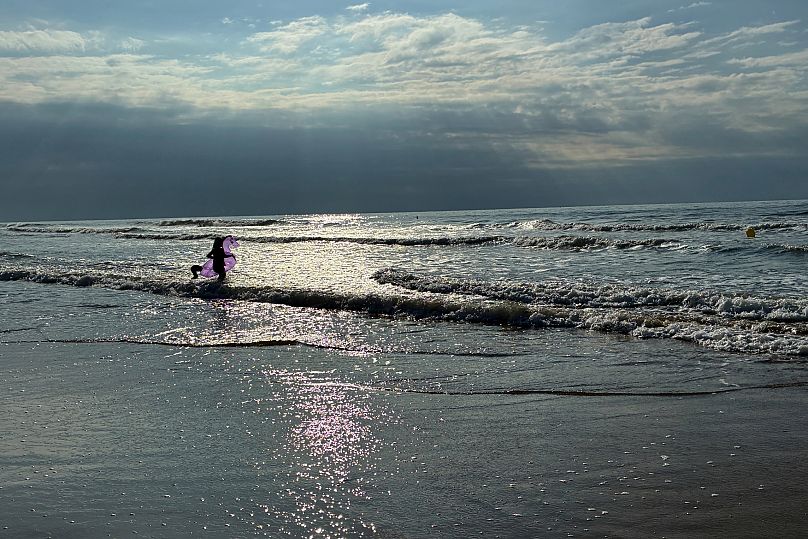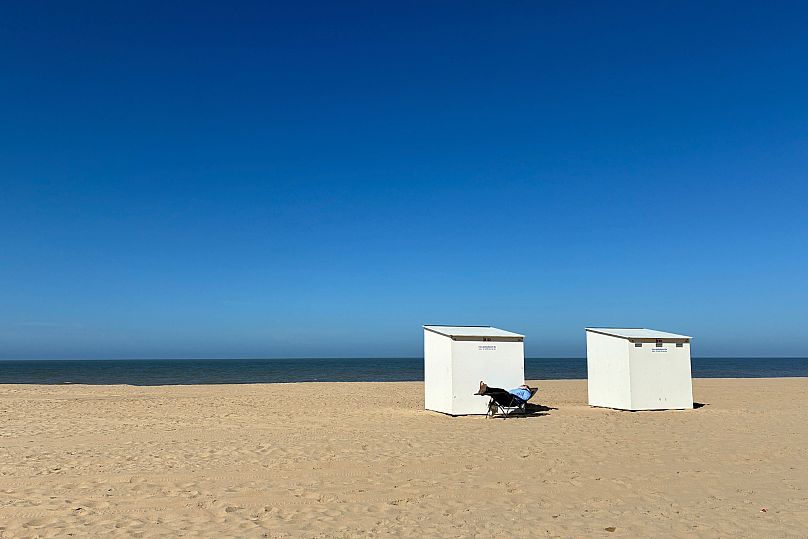In Belgium, the Inter agency launched the "Sun, Sea... Carefree" programme in 2006, to improve access to the coastline.
With her granddaughter in her lap, Monique is enjoying a trip to the North Sea in a beach wheelchair. In Belgium, eight beaches are accessible to people with reduced mobility, such as here in Ostend.
 ADVERTISEMENT
ADVERTISEMENT
 ADVERTISEMENT
ADVERTISEMENT
"I've always wanted to experience the waves and the sea, but I couldn't," Monique Braeken told Euronews.
The Flemish agency Inter launched the "Sun, Sea... Carefree" programme in 2006 to make the Belgian coast accessible to everyone. The programme provides users with free beach wheelchairs, some of which are electric and tiralos, floating amphibian models to make swimming easier.
"I loved it. I was completely soaked when I went out, and it was wonderful. And the grandchildren enjoyed it too, because they got to see Grandma in the sea," said Braeken.
Each facility has adapted changing rooms, toilets and showers. Parking spaces reserved for people with reduced mobility and access ramps have been installed, and the premises are located close to a tram stop. As Belgian beaches are wide, a solid pathway has been built on the sand to enable wheelchair users to get closer to the sea.
Accompanied swimming
Bart Parmentier, the founder of Sun, Sea... Carefree, explains that he had to adapt the solutions to the particularities of the North Sea.
"Sometimes the sea is a long way from the coast. And we also have rough seas. It's not the same as the Mediterranean. So that's another challenge we have here in Belgium," he explained.
So while on some parts of the Greek, Italian and Cypriot coasts, users can swim completely independently thanks to automated Seatrac gangways, this system would not be suitable for the Belgian coastline, according to Parmentier.
He insists that there are two essential elements to making the coast accessible to people with reduced mobility: offering adapted infrastructures and equipment, but also providing assistance.
If necessary, assistants can push wheelchair users into the sand and accompany them while they swim.
"We go into the water with people who have never been to the sea", explains Keiko Schelck, a swimming assistant with the "Sun, Sea... Carefree" programme in Ostend, pointing to a tiralo.
"We assist them, we follow the waves a bit and it's really fun".
Joyce Vyncke, who trains the attendants, spoke emotionally about the project and about how some end-of-life care users want to see the sea one last time.
A free service
The service, which is entirely free for users, is mainly funded by the municipalities.
"Users pay nothing, we like to have the seaside as a public service for everyone," Maxim Donck, municipal councillor for accessibility for the city of Ostend, told Euronews.
In his view, it is also a tourist attraction.
"This summer, we have 372 unique people who have used this facility here in Ostend. Only 100 came from Ostend or Flanders. So the majority come from outside this town. So I think it's very important for tourism," he says.
In Europe, other solutions exist. In France, for example, the Handiplage label lists beaches that are accessible to people with reduced mobility.
The 2008 United Nations Convention on the Rights of Persons with Disabilities (UNCRPD) stipulates that people with disabilities have the right to equal access to leisure and sport.












